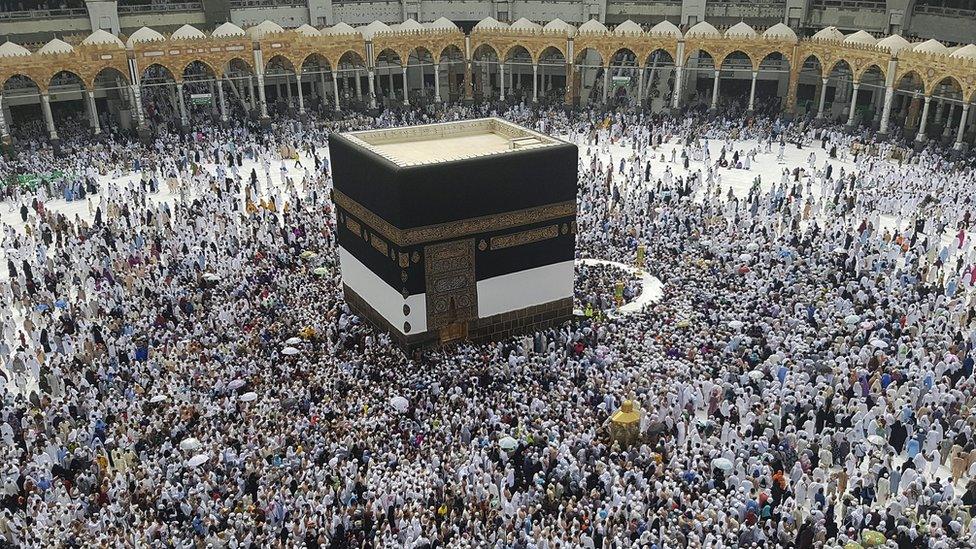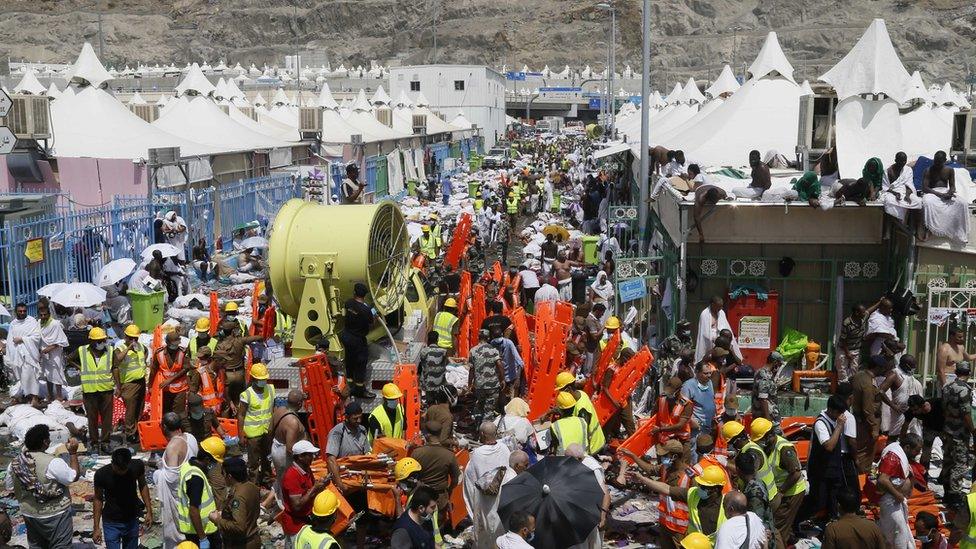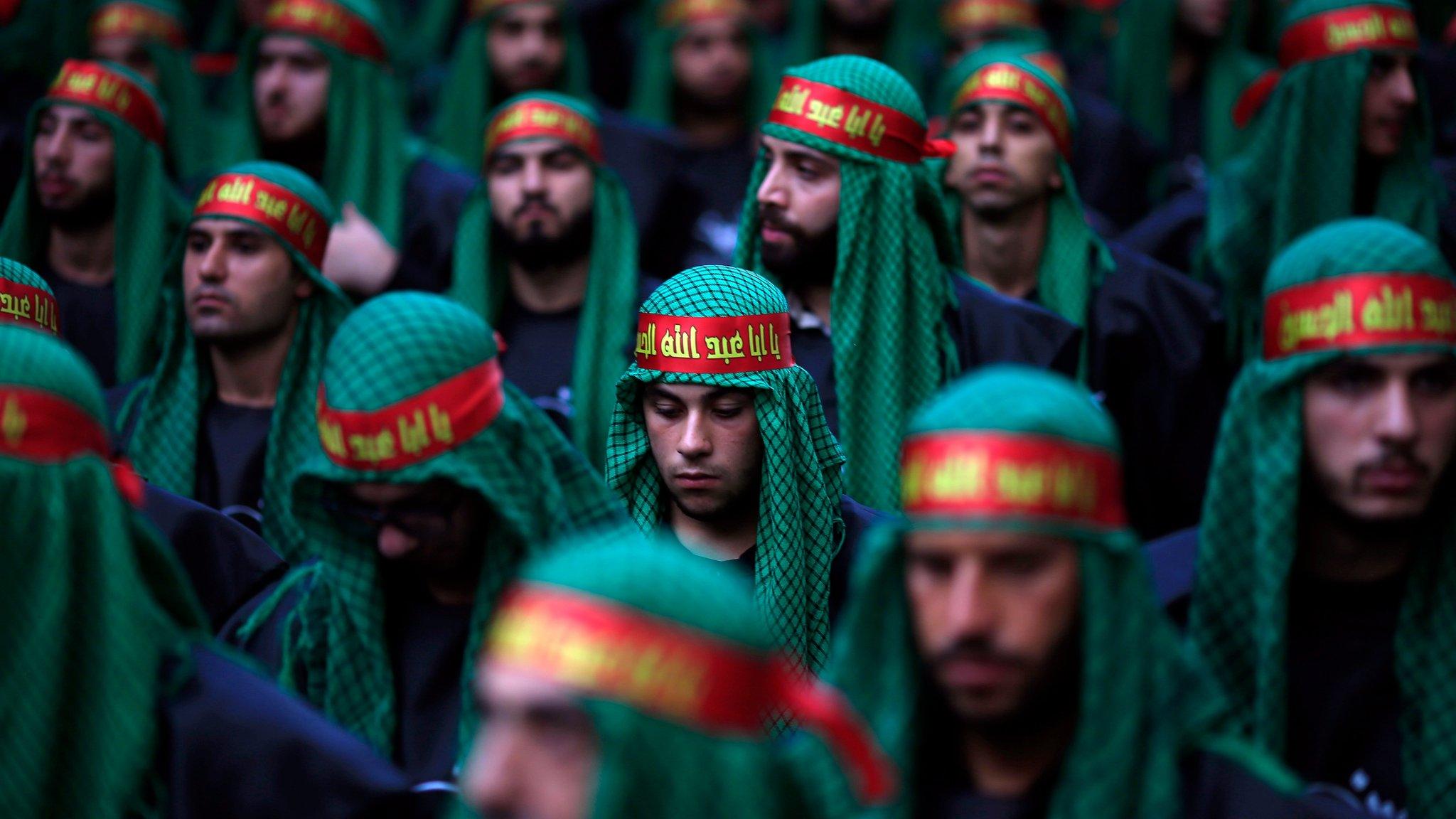Iranian pilgrims 'to attend Hajj again' after Saudi rift
- Published

Over two million Muslims are expected to travel to Mecca for the Islamic pilgrimage
Saudi Arabia says Iranian citizens will attend this year's annual Hajj pilgrimage to Mecca, after missing last year's event following a bitter rift between Riyadh and Tehran.
Relations worsened between the two regional powers after hundreds of pilgrims died in a stampede at the Muslim pilgrimage in 2015.
Issuing visas and security arrangements were major sticking points.
But a deal has been reached after talks between the two countries, Riyadh said.
The pilgrimage to Mecca is one of the five fundamental pillars of Islam, and every able Muslim is obliged to undertake the trip at least once in their life.
Last year was the first time in nearly three decades Iranian pilgrims did not attend.
In the aftermath of the disaster, Ayatollah Ali Khamenei accused the Saudi authorities of "murdering" pilgrims who had been caught up in the deadly stampede. Iran had blamed it on organisational incompetence.

Pilgrims were taking part in the Hajj's last major rite when the crush occurred two years ago
The number of those killed in the crush is still unclear. Saudi Arabia put the death toll at 769, whereas independent counts by countries repatriating bodies suggest as many as 2,426 people may have died.
Iran says it lost 464 citizens, and compensation for the families was a key issue in restoring the annual pilgrimage.
Despite the reported agreement, tensions remain as Saudi Arabia repeatedly accuses Iran of fuelling conflicts by supporting armed Shia movements in the region.
Iran rejects accusations of regional aggression and says Saudi Arabia must stop its alleged support for Sunni "terrorist" groups.
- Published4 January 2016
